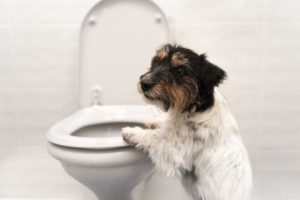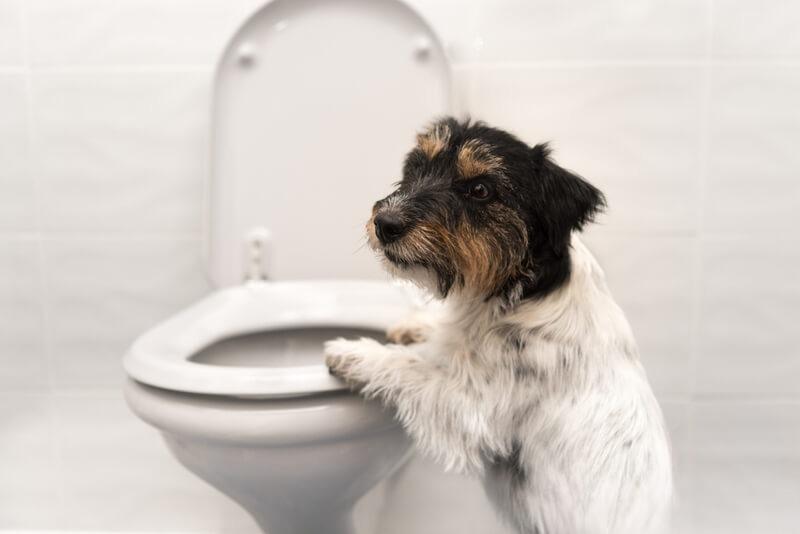As a person who owns a dog, it can be quite upsetting to witness your beloved pet experiencing diarrhea. This frequent health issue among dogs can stem from various reasons such as infections, food sensitivities, and changes in diet. It is crucial to take appropriate measures to ensure that your dog receives proper care to heal promptly and avoid any potential complications.
This post will explore proper care techniques for dogs experiencing diarrhea. We will cover a range of topics such as identifying potential causes, recognizing symptoms, and exploring different treatment methods. Furthermore, we will offer suggestions on how to prevent diarrhea in dogs.

Causes of Diarrhea in Dogs
There are various reasons why dogs experience diarrhea, such as
1. Poor Diet
Inadequate nourishment is a prominent factor contributing to canine diarrhea. Supplying your pet with subpar nutrition or abrupt alterations in their dietary intake can disrupt their digestive functioning and result in diarrhea.
2. Food Allergies
Similar to humans, dogs can also suffer from food allergies. Some of the most common food allergens for dogs are beef, chicken, soy, dairy, wheat, and corn. If your dog suffers from diarrhea after eating any of these foods, it could be a sign that they have a food allergy.
3. Infections
Diarrhea in dogs can be caused by bacterial, viral, and parasitic infections. These types of infections can be acquired from consuming contaminated food or water, or through direct contact with infected animals.
4. Medications
Some medications can lead to diarrhea in dogs. For instance, antibiotics have the potential to disturb the natural bacteria balance in the digestive tract, resulting in diarrhea.
5. Stress and Anxiety
Tension and worry can also result in diarrhea for dogs. Alterations in their daily schedule, trips to unfamiliar places, or exposure to unfamiliar surroundings can cause your canine companion to experience stress and subsequently suffer from digestive problems.
Symptoms of Diarrhea in Dogs

Diarrhea in canines is typically identified by the presence of soft or watery feces, more frequent defecation, and occasionally the appearance of blood or mucus in the stool. Additional indications may also encompass
- Vomiting
- Loss of appetite
- Lethargy
- Dehydration
If your canine displays any of these signs, it is crucial to promptly seek medical assistance from a veterinarian, as diarrhea can rapidly result in dehydration and additional complications.
Treatment Options for Diarrhea in Dogs
The appropriate courses of action for addressing diarrhea in dogs vary based on the root cause of the ailment. For less severe instances, simple measures like altering the dog’s diet and ensuring adequate hydration may be effective. Yet in more serious cases, a vet may suggest medication or even hospitalization as necessary treatment methods.
1. Dietary Changes
Making modifications to a dog’s diet can be beneficial in relieving diarrhea caused by inadequate nutrition or food sensitivities. The following suggestions may prove useful:
a. Fasting
Abstaining your canine from food for 12-24 hours can offer their digestive tract a chance to take a break and recuperate. While they are fasting, ensure that they have access to ample water to avoid dehydration.
b. Bland Diet
Following the fasting period, introduce a mild and gentle diet composed of cooked chicken and rice. This type of diet is easily digestible and can aid in solidifying your dog’s stool. Slowly reintroduce their normal food after a few days.
c. Probiotics
Probiotics are advantageous microorganisms that can aid in replenishing the equilibrium of beneficial intestinal bacteria in your pet’s digestive tract. These helpful bacteria can be given to your pet through supplements or incorporated into their diet, such as through yogurt.
2. Hydration
Diarrhea has the potential to induce dehydration in canines, which can result in additional health issues. It is essential to make sure your dog always has access to fresh and uncontaminated water for drinking purposes, and to prompt them to consume it regularly.
a. Electrolyte Solution
In the case of your canine being dehydrated, administering an electrolyte solution can aid in restoring lost hydration and essential minerals. You can acquire these solutions from your veterinarian or create your own by combining one tablespoon of sugar and a half teaspoon of salt in one liter of water.
3. Medications
In more serious situations, a vet might administer medication for dog diarrhea. This type of treatment may involve antibiotics, anti-inflammatory medications, or anti-parasitic drugs.
Prevention Tips for Diarrhea in Dogs

“Taking preventative measures is more effective than treating an illness, and the subsequent advice can aid in preventing diarrhea in canines.”
- Offer your dog superior quality nourishment.
- Make sure to gradually introduce any changes in your pet’s food to prevent abrupt alterations in their diet.
- Ensure that your pet’s surroundings are hygienic and devoid of any harmful pathogens.
- Make sure that your canine has constant access to fresh water for drinking.
- Reduce the amount of stress and anxiety experienced by your canine companion.
Conclusion
Diarrhea in canines can be a source of concern for both the animals themselves and their human caretakers. Having an understanding of the root causes, signs, and treatment choices can enable you to give your beloved companion the necessary support for a speedy recovery. It is crucial to seek prompt veterinary attention if your dog is suffering from diarrhea to prevent any potential complications. By implementing preventative measures, such as providing your pet with nutritious food and reducing stress, you can decrease the likelihood of diarrhea and ensure your furry friend’s overall well-being and happiness.
